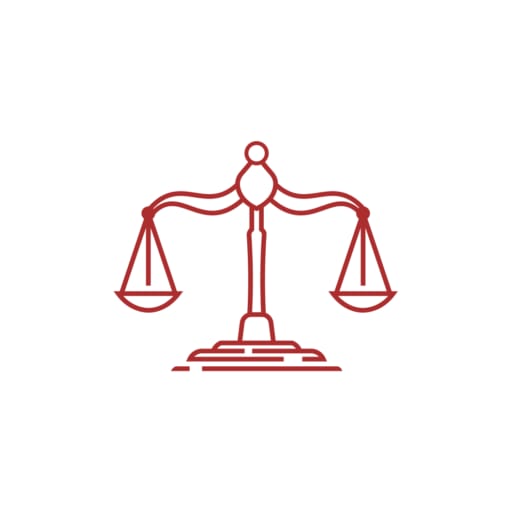5. Medicaid Rebates- $784.6 Million
On April 27, 2016, the Department of Justice announced that Pfizer and its subsidiary Wyeth had agreed to pay $784.6 million to settle cases regarding Medicaid rebates calculation for a gastric drug. Fifteen US states filed complaints in Massachusetts federal court in 2009 claiming that Wyeth had failed to provide state Medicaid programs the same rebates it offered private hospitals. As per the allegations, Wyeth sold two of its PPI (proton pump inhibitor) drugs, Protonix IV and Protonix Oral, through bundled sales agreement such that a hospital earned steep discounts on the two drugs if it availed them within the hospital. The discounts incentivized hospitals to buy the drugs despite there being other competitively-priced and safe drugs readily available. It did not disclose the discounts to avoid paying hundreds of millions of dollars to Medicaid from 2001 to 2006. Wyeth was therefore charged with knowingly reporting to the government false and fraudulent prices of the two drugs. The settlement was divided such that Wyeth would pay $414,248,820 to the federal government, and the state Medicaid programs would receive $371,351,180.
4. Neurontin – $945 Million
In 2004, Pfizer’s subsidiary, Warner-Lambert, agreed to pay $430 million after pleading guilty to criminal charges and civil liabilities associated with the illegal and fraudulent promotion of Neurontin. The company marketed the drug as a treatment for an array of diseases that the FDA had not approved. Besides, scientific studies had proven that Neurontin was ineffective in treating such ailments. The lawsuit was far from over thus in April 2014, Pfizer agreed to pay another $190 million to settle a class-action lawsuit that alleged delayed market entry of the generic versions of Neurontin.
According to Reuters, buyers claimed that Pfizer forced them to pay inflated prices for the drug. As always, Pfizer denied any wrongdoing. They said they were happy with the results after the long and hard litigation process. They had spoken too soon because barely six weeks passed before Pfizer once again agreed to pay an additional $325 million to wrap up claims that the company’s Parke-Davis unit had touted Neurontin for non-approved FDA uses. Parke-Davis unit was a Warne-Lambert unit, and the off-label marketing labels went as far back as 1994. The total sum of settlements paled in comparison to the billions of dollars that Blue Cross Blue Shield Association was seeking in damages.
3. Prempro -$1.2 Billion
It seems that when Pfizer acquired Wyeth, it should have considered the lawsuits that came with it. Wyeth was the original defendant in personal liability cases revolving around the hormone replacement therapy drug Prempro. Pfizer took over and, in 2009, had to pay $6.3 million to a breast cancer survivor in compensatory damages because Prempro was among the drugs that caused cancer. The award was the largest then of the three dozen Prempro cases tried in Philadelphia. Unfortunately, the fight was just the beginning for the drug company. In 2012,
Fierce Pharma published that Pfizer had agreed to pay $896 million to settle 60% of the cases alleging that Prempro and Provera, also sold by Pfizer’s Pharmacia unit, caused breast cancer. About 4000 lawsuits were still pending, and Pfizer set aside $330 million to cover the settlements, bringing the total amount for the 10,000 cases to $1.226 billion. The pharmaceutical company added that the additional $330 million would likely not be enough to cover the remaining 4,000 claims, but they were still satisfied with the outcome.
2. Celebrex – $1.5 billion
When Pfizer bought out its rival, Pharmacia, it acquired Celebrex, a Cox-2 inhibitor. Investors accused Pfizer and former Pharmacia executives of violating securities laws and sued them, claiming the company and official misled investors regarding Celebrex trial data. In 2007, a judge certified the class action lawsuit and set a trial date. In October 2008, Pfizer reached an $894 million deal to end most of its lawsuits over Celebrex and Bextra; the company hoped to cover up to 92% of the claims through that settlement. However, that was not the end of the matter. In 2012, there was another $164 million deal to wrap up the lawsuit. Pfizer insisted they had not done anything wrong despite offering the settlements. Unfortunately, the matter was far from over.
According to Yahoo, Pfizer reached another $486 million settlement still involving Celebrex and Bextra. The amount was supposed to cover shareholders who bought Pfizer’s stock between October 31, 2000, and October 19, 2005. The company had already suffered enough financial damage because, in October 2004, it had lost $70 billion in market value when investors dumped their shares.
1. Bextra, Zyvox, Geodon, and Lyrica -$2.3 Billion
On September 3, 2009,
ABC News reported the largest healthcare fraud settlement in the history of the Justice Department. Pfizer and subsidiary, Pharmacia & Upjohn Company Inc., agreed to pay $2.3 billion after the subsidiary pleaded guilty to misbranding Bextra, purposing to defraud. Pfizer had pulled Bextra from the market in 2005 but still promoted the drug for uses and dosages that the FDA had previously declined to approve. As a result, Pfizer had to pay a fine of $1.195 billion- the amount was the highest criminal fine ever imposed in the US. Pharmacia & Upjohn Company Inc., on the other hand, had to forfeit $105 million. The punitive damages also included $billion that Pfizer agreed to pay to resolve claims of illegally promoting Geodon, Lyrica, Zyvox, and Bextra. The civil settlement was to resolve claims of Pfizer paying kickbacks. From the $1 billion, $331,458,170 went to the state Medicaid program, and $668,514,830 to the federal government. It was the largest fraud settlement in the litigation history of pharmaceutical companies.




